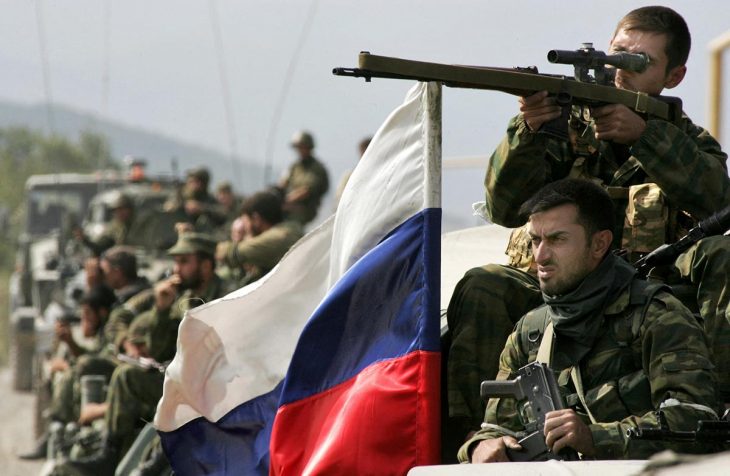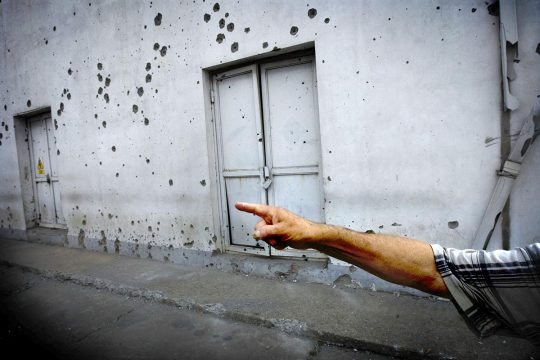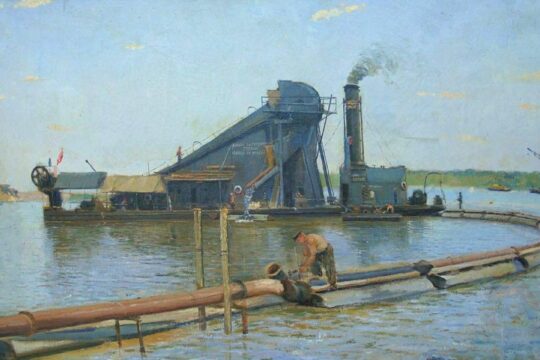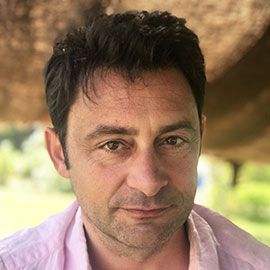Fatou Bensouda promised it, Karim Khan did it. Before she left, the former International Criminal Court (ICC) Prosecutor indicated that she would hand over her findings on the investigation she opened in 2016 into the 2008 Russian-Georgian war. The symbolic goal for Bensouda was to show Africans they were not the only ones targeted. She didn't, and it was her successor who did so, on March 10, with another symbolic goal in mind in the context of the war in Ukraine: to show the world that the ICC is not standing idle in the face of Russian violations of international law.
Via Georgia, current ICC Prosecutor Khan wants to show that his office is not afraid to target those who carry out the orders of Russian President Vladimir Putin - whilst waiting to show results of the emergency investigation opened on Ukraine on March 2. This came eight years after Ukraine’s referral to the ICC, following the start of the conflict in Crimea and the eastern Donbass region in 2014. On March 10, in requesting arrest warrants for three former separatist leaders of South Ossetia - a territory in northern Georgia de facto annexed by Moscow in 2008 -, the Prosecutor stressed that his office "concluded that a similar pattern of action existed during its preliminary examination of the situation in Ukraine".
Three South Ossetians and a deceased Russian general
Thus Georgia is a “proxy”, allowing the ICC to react to the situation in Ukraine -- just as the three South Ossetian suspects it is targeting were “proxies” in the five-day war between Tbilisi and Moscow, which resulted in the deaths of 850 people and the forced displacement of nearly 30,000 Georgians. The three men suspected of war crimes - Mikhail Mindzayev, Gamlet Guchmazov and David Sanakoev - were respectively Minister of the Interior, director of a detention centre and ombudsman. A fourth suspect, Russian General Vyacheslav Borisov who was at the head of the occupying troops, is mentioned in the Prosecutor's request. But this key man is since deceased.
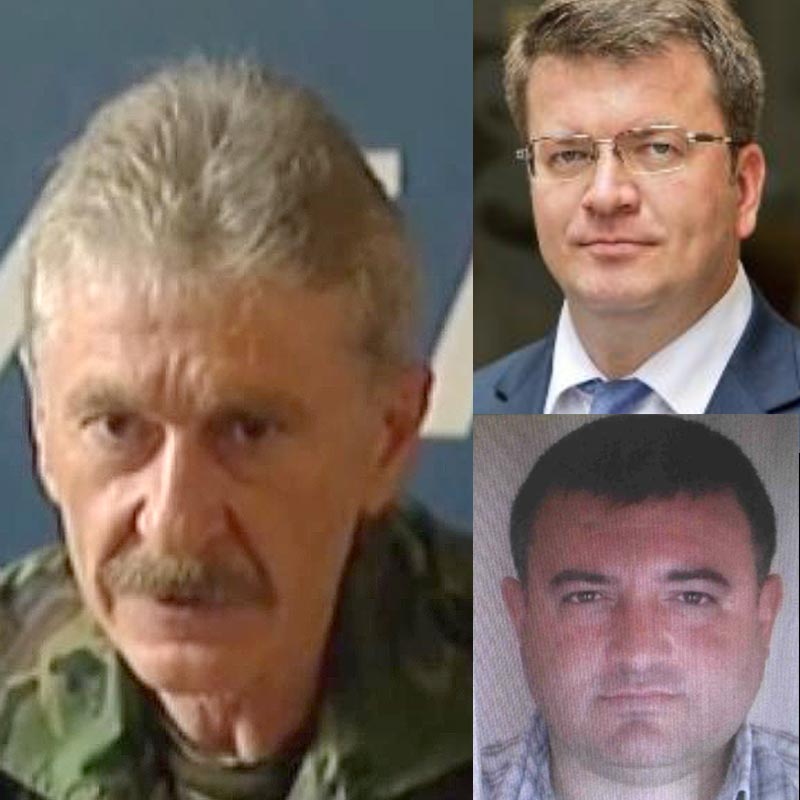
"The government of South Ossetia was a peculiar one, it was said to be an independent State but only Russians would take the key positions in the government,” says a former Georgian official who was an internal security analyst during the war and subsequent peace negotiations. "The prime minister was from Siberia. The minister of defense was from Belarus. Mindzayev was from North Ossetia [Russian Federation]. It was a classical puppet government that was representing Russia rather than the local population. The president of the de facto Republic fled just when the war began, and every government official was under the command of the Russian forces. Borisov was central. Although he would claim that he was only in charge of the airborne forces, he was also the guy who was the commander of the land forces.” Other sources describe the former Russian general as a "de facto governor" in the early days of the South Ossetia occupation.
This same first-hand witness describes the mechanics of the invasion: the Russian armed forces came to the front line, then “volunteer” auxiliaries - composed, among others, of Chechens, Kazakhs or Ossetians mobilized two or three months earlier - took care of the dirty work, the "ethnic cleansing”. According to the former Georgian official, Mindzayev and Kuchmazov both supervised and personally participated in this "work" - notably in a temporary detention centre in the South Ossetian capital Tskhinvali - and are potentially identifiable by direct victims. Sanakoev is alleged to have organized hostage-taking for ransom. Prosecutor Khan's application relates to acts of illegal detention, ill-treatment, hostage-taking and "the subsequent illegal transfer of Georgian civilians in the context of an occupation by the Russian Federation", which constitute war crimes.
The ICC, "obedient tool of the West”
Moscow, via its foreign ministry spokeswoman Maria Zakharova, reacted vigorously to the request for arrest warrants against citizens of South Ossetia, "who are also citizens of Russia". She did not hesitate to put them in the context of the opening of an ICC investigation into Ukraine. "Of course," she writes, "there is a reason behind the decisions of the Prosecutor. He has decided to contribute to the anti-Russian hysteria raging in the United States, the European Union and the bodies they are controlling. The time chosen to issue arrest warrants and the choice of the parties accused has shown clearly that the ICC has always been and remains an obedient tool of the West."
In Tbilisi, the Ministry of Justice congratulated itself on having won "a new victory" against Russia - after the one last year in the Strasbourg Court.
But in Georgia, whose pulse beats more than anywhere else to the rhythm of the bombs falling in Ukraine, civil society reactions to the ICC announcement are sceptical. “It is of course good to have this, but definitely frustrating that things take so long,” says Nino Tsagareishvili, co-director of the Human Rights Centre in Tbilisi. “Justice is not served for those people who have waited, and some have died.” The ICC Trust Fund for Victims, she laments, took more than a year to select its partners. A final decision is expected in the next few weeks. Only then can the programme begin. "It's really important, because it's one of the few ways the ICC can bring some relief to victims," says Tsagareishvili.
“Better late than never”
“It is better late than never for the thousands of Georgian victims of ethnic cleansing,” agrees Paata Gaprindashvili, director of the think tank Grass and former diplomat who took part in the peace keeping mechanism meetings after the war. “But the investigation should continue and reach those most responsible, including in Russia. Georgian authorities welcomed it, and vowed to support the ICC. But this welcome is mired in political polarization. The policy of this government backed by Bidzina Ivanishvili [oligarch who built his wealth in Russia], is not to provoke Russia, not to irritate it.” This has led to “blunders”, he says, including most recently its failure to officially show solidarity with Ukraine.
“Fourteen years after the war, three warrants requested against South Ossetians -- this is not a good result,” says Mariam Jishkariani, president of RCT Empathy, an NGO representing some 60 victims and potential witnesses at the ICC. “If the investigation had been more effective, it might have been somehow preventive for Ukraine.” The three wanted men are protected by Russia, she says. “War crimes could not have been perpetrated on the orders of only these officials. They represent nothing and it means Putin gave some green light to do more war crimes and it’s happening now,” Jishkariani continues. She thinks there are similarities between Georgia and the situation in Ukraine, not only in the types of crimes committed but also in the way the ICC is taking so long to achieve results. She does “not understand why the ICC needs so much time".
In an open letter to Prosecutor Khan dated March 28, the Coalition of Georgian NGOs for the ICC urges him "to investigate the responsibility of the political and military leadership of the Russian Federation”. The letter raises another point: the absence of crimes against humanity charges in his request. It is true that the Prosecutor is targeting the "illegal transfer" of Georgians from South Ossetia as a war crime, but not the broader crime of "deportation or forcible transfer of population", which is a crime against humanity, retained by Bensouda during the preliminary examination. The ethnic dimension of the crime, in particular, cannot be included in war crime charges. “Georgian authorities and numerous international organizations published reports describing the ethnic cleansing of the Georgian population in Tskhinvali Region and other actions directly linked not only to the commission of war crimes, but also crimes against humanity,” recall the NGOs in their letter.
"We, the coalition, believe that the prosecutor should consider the higher levels of responsibility in the Russian forces," says Tamar Oniani, from the Georgian Young Lawyers' Association Gyla, the coalition's leader. "This is not just a problem between Georgians and separatists", she added.
“Natsi” vs “Kotsi”
On Shota Rustaveli Avenue, the "Champs-Élysées" of Tbilisi, portraits of Georgian fighters who died in Ukraine are placed against a statue in memory of people killed during demonstrations for Georgia's independence in 1989. In spite of the government's ban on volunteers going to Ukraine, many Georgians have gone there, some to take up arms alongside the Ukrainians, some to work with the government and some to assist refugees. There are demonstrations of solidarity on every street corner. Yellow and blue flags are flying on balconies, on store fronts and on the lapels of coats. Trendy Tbilisi people are snatching up anti-Covid masks in the colours of Georgia and Ukraine, which a store in the chic Vaque district had the smart idea of making.
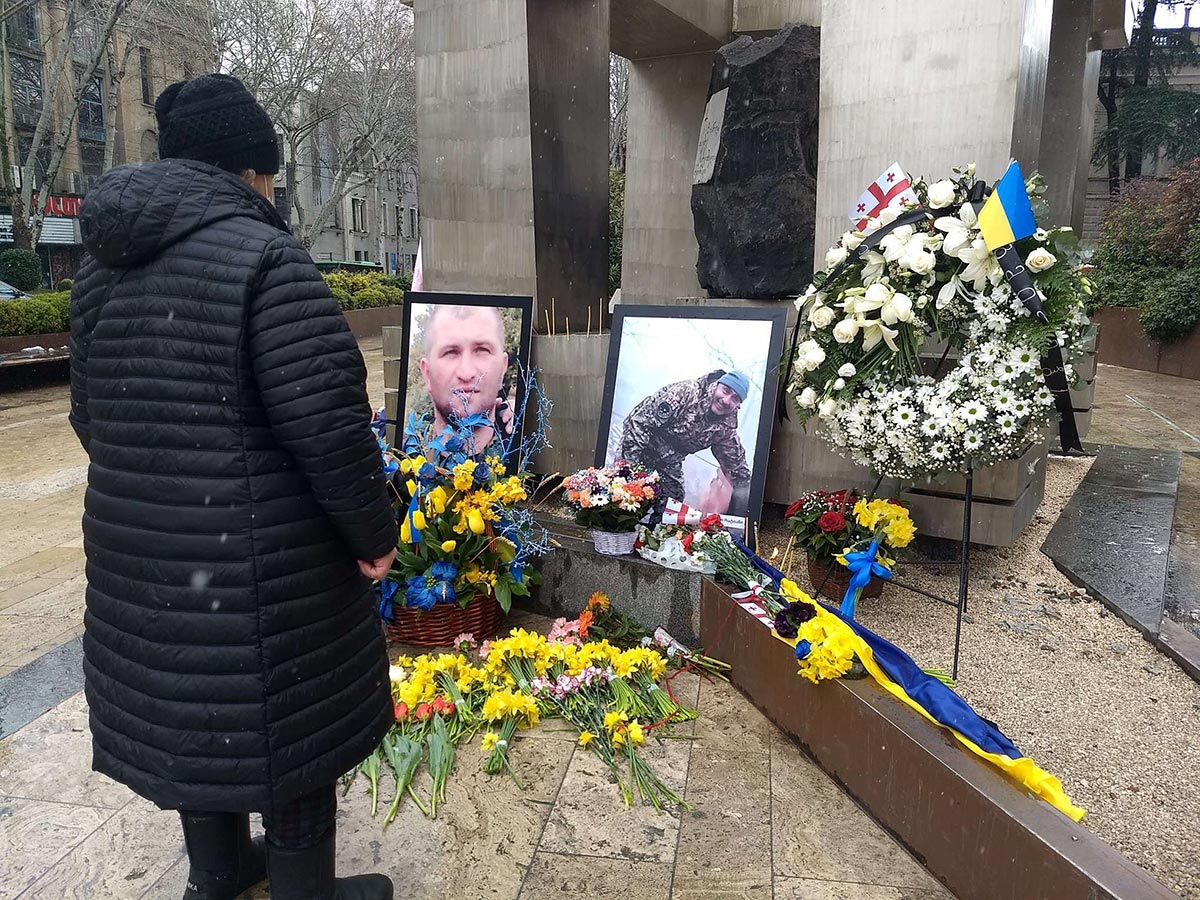
The gap between a pro-Western opposition and a pro-Russian government is widening. Some supporters of former President Mikhael Saakashvili refer ironically to Putin's "denazification" rhetoric, saying that here they are also called the "Natsi" -- a shortened form of Ertiani Natsionaluri Modzraoba (United National Movement). The other camp is the "Kotsi," derived from Kartuliy Otsneba (Georgian Dream, a party founded in 2012 by billionaire Ivanishvili). The Natsi suspect that the Kotsi wanted an arrest warrant from the ICC against Saakashvili, whom the Kotsi accuse of having started the 2008 war. So, the Natsi are relieved that the worst has been avoided and The Hague has not targeted any Georgian to date. But the Kotsi have obtained their "political revenge", to quote Amnesty International, by another means, namely by imprisoning Saakashvili when he first returned to Georgia on October 1, 2021, and subjecting him to a series of trials. He is currently in jail in Georgia. When in exile Saakashvili became a Ukrainian citizen, and was in 2020 named head of the National Council of Reforms there. Upon Saakashvili’s arrest, Ukrainian President Volodymyr Zelensky has asked Tbilisi, in vain, that Putin's Caucasian bête noire be allowed to return to Kyiv.
"International organizations can't understand"
David Beritashvili is a convinced Natsi. A biologist by training, he lived in Russia for 40 years before returning to Georgia when Saakashvili called him as presidential advisor. This scientist has meticulously documented, in collaboration with the NGO Grass and others, the forced displacement of Georgians from South Ossetia. Comparing satellite images before and after 2008 and asking refugees to identify their homes, he coordinated the building of a database, which he shared with ICC investigators in 2018. The data links the names of 16,273 displaced people to 5,023 destroyed homes. This painstaking work is accessible online on Google Earth.
Click on the image below to open the slideshow in large size
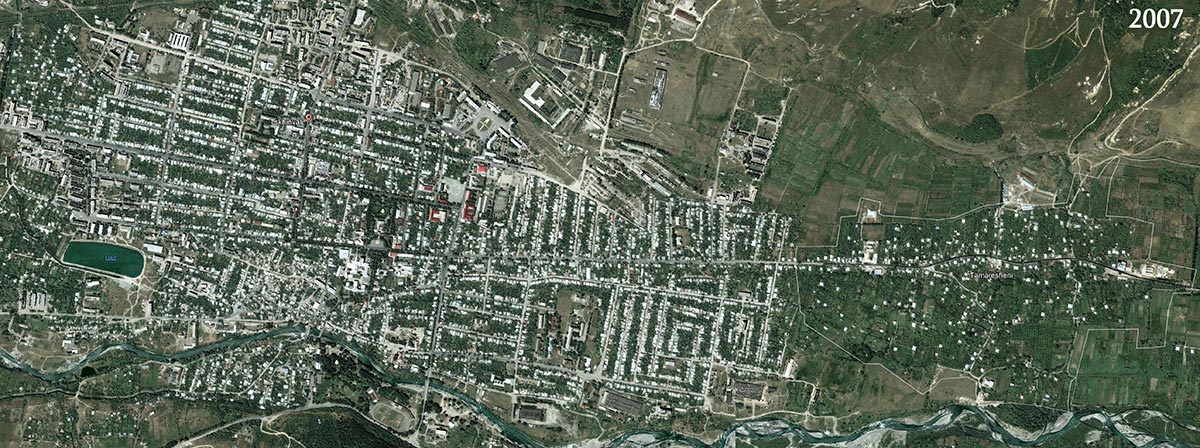
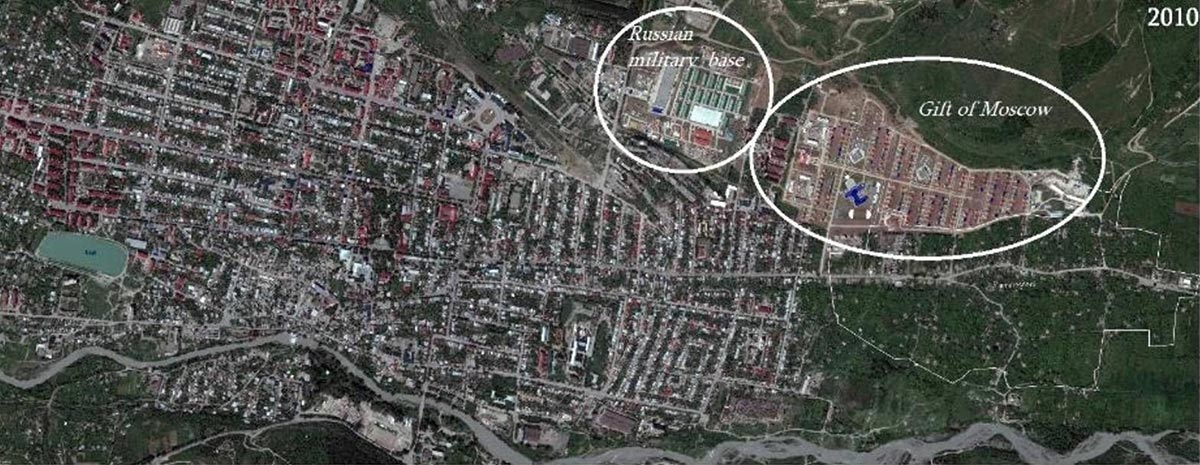
Beritashvili says he is "very disappointed" with the ICC. The people targeted are too low-level to represent the reality of this hybrid war, he says. "The ICC people say they are continuing work but you don't see them here in Georgia. Since 2018, they called me once to check during Covid, and then last week to tell me the news. They say this is just the beginning and at the same time they only have three people working on the Georgia case. I don't know. What are they doing? What is their purpose?"
The chances of arresting the three suspects and bringing them to trial before the ICC are slim to zero. "Unless there is a change of administration, there is no chance that Russia will give them up," says Nika Jeiranashvili, director of the NGO Justice International. Jishkariani thinks the failure to trace responsibility for the war in Georgia to higher levels does not send a strong message for Ukraine. “It’s some kind of general problem, as if international organizations can’t understand what is happening. The United Nations doesn’t work. NATO cannot restrain Russia. And the European Union has no effective measure to stop Russia’s aggression. Maybe it’s time to make some changes in the international institutions.”


